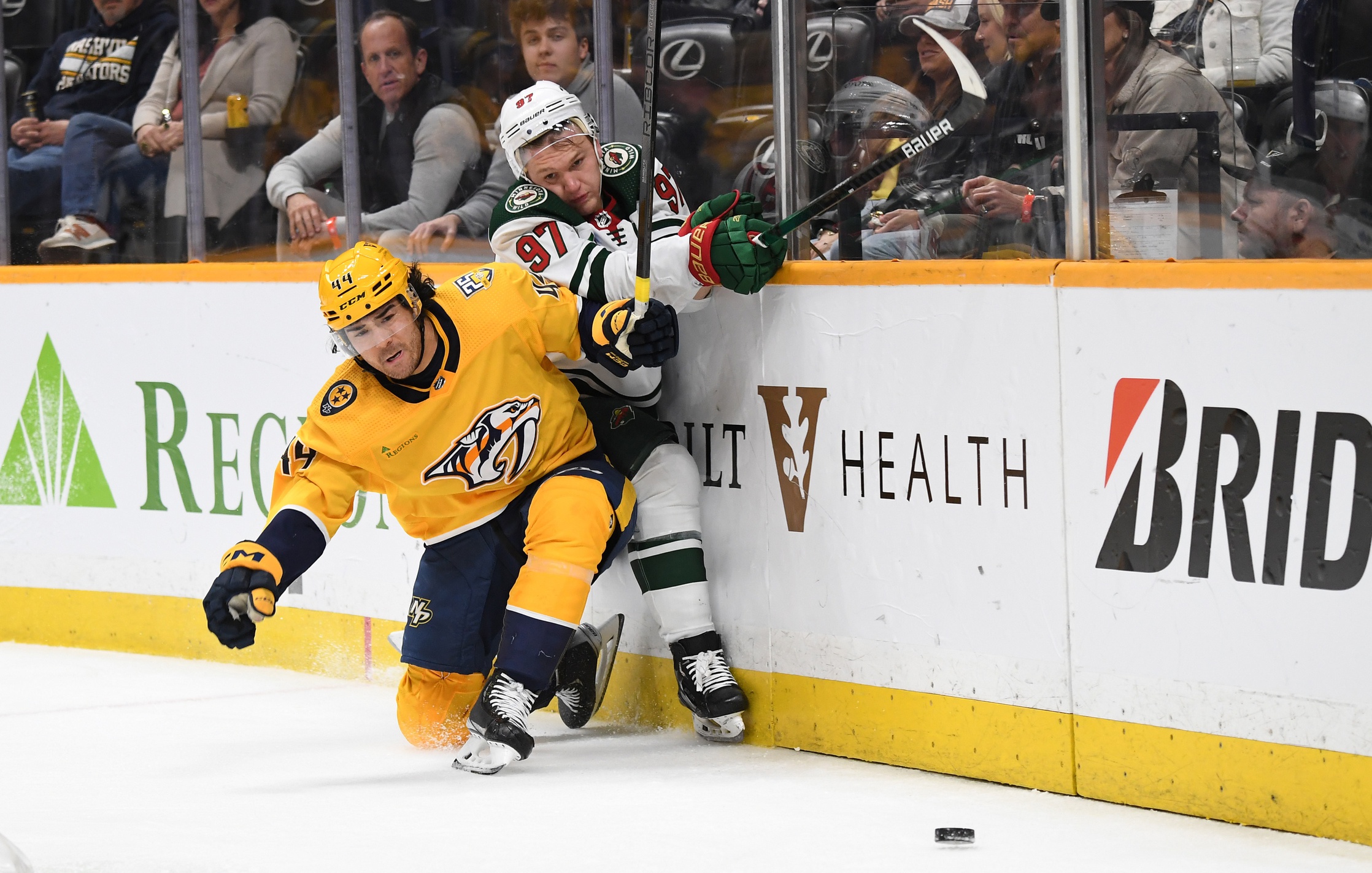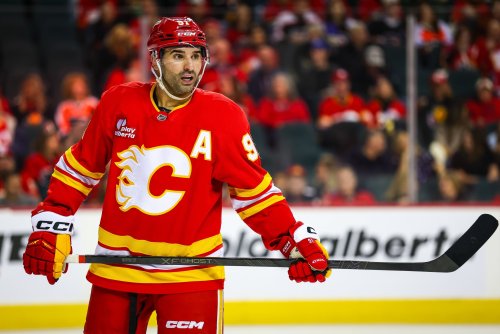
Do you want the good news or the bad news? It’s the holidays, and I’m feeling joyfully optimistic, so let’s start with the good news.
Even after a slow start that led to a coaching change and many wondering if it was time to tank for a high draft pick, the Minnesota Wild’s small turnaround lately has them in a perfect position to challenge for a playoff spot in the wide-open West.
The bad news? The West doesn’t seem as wide open as it did when general manager Bill Guerin made his coaching change in late November.
At the time, the Edmonton Oilers and Minnesota were labeled as Western Conference playoff hopefuls who were severely under-performing. Their struggles opened the door for early-season surprises in cities like Arizona and Nashville. Even the Winnipeg Jets seemed to rebound from a poor season last year to reclaim their position in the top three of the Central Division. But the growing theme was a handful of those teams were paper tigers and would eventually come down to Earth for the Oilers and Wild to climb back into the race.
The real problem for the Wild is that the Western Conference playoff picture might have only one spot left. And that’s a dangerous game of musical chairs to be playing. But it’s the reality of their current situation.
The top three in the Pacific Division are all but locked down, barring a monumental meltdown from three teams that look to be serious Stanley Cup Contenders: the Las Vegas Golden Knights, Vancouver Canucks, and Los Angeles Kings. The same could be said for the Central Division, too, but with a little more hesitancy. The Colorado Avalanche, Winnipeg Jets, and Dallas Stars have their warts, but they have also clearly separated themselves from the rest of the division. Even a minor slipup by either team would still be an almost impossible hill to climb in the standings for Minnesota.
And that leaves the two wild card spots. When Edmonton and Minnesota made their coaching changes a few weeks ago, it was done in the hopes of sparking a struggling team into climbing back into an open wild-card race. Minnesota looks stronger and more consistent under John Hynes. Still, they're nowhere near the dominant turnaround their friends to the north are experiencing.
To nobody’s surprise, Edmonton is surging up the standings. The entire hockey world knew once Connor McDavid was healthy and their goalies made a few saves, they’d become a horse once again. Winners of eight of their last ten, it’s safe to say the thoroughbred has finally left the starting gate.
What does this mean for the Wild? Let’s assume neither of those three at the top of the Pacific standings will fall on their face – a very assumption. Edmonton may chase down the Kings, for example. But the Wild likely won’t, not with an extra game played and ten fewer points. Those four teams will likely occupy the top three spots in the division, plus the first wild card.
Back to the Central. It’s difficult to imagine the Wild catching Dallas, the current 3-seed, with the same games played and nine fewer points. Not to mention, the Stars are simply a better team. Maybe Winnipeg slips in the next few months with All-Star sniper Kyle Connors out with an injury, but they have yet to slow down with him out of the lineup, so that seems unlikely.
You can see where this is going. With the Pacific all but locking up four spots and the top-3 in the Central also penned in, only one wild card spot remains. One. And it looks daunting with five teams currently positioned between the Wild and that final spot.
Yet, there is a light at the end of the tunnel. Remember when I promised there was good news and bad news? Here’s where the good news comes into play. Even with only one spot left up for grabs, the Wild have an extremely good chance at grabbing that seat when the music finally ends in April. A nice scheduling quirk has afforded them such a chance.
Due to their trip to Sweden and the fact that the NHL cannot create a schedule that makes the standings look accurate week to week, the Wild are positioned better than you'd think. They have anywhere between one and five(!) fewer games played than those other contenders for the final playoff spot. The Nashville Predators, St. Louis Blues, Arizona Coyotes, Calgary Flames, and Seattle Kraken have all played more games and the Wild are looking up at each of them. However, points percentage catapults the Wild ahead of Calgary and Seattle.
The Wild’s Eastern Conference heavy schedule to start the season helps their case, too. They’ve played 15 of their first 27 games against the East, more than any of the teams they’re competing with for the final spot in the West. That leaves them with more opportunities for the all-important head-to-head matchups against those other five teams.
Here are how many games each of the five contending teams have remaining against each other:
|
Minnesota |
12 |
|
Arizona |
12 |
|
Nashville |
10 |
|
St. Louis |
9 |
|
Calgary |
9 |
|
Seattle |
9 |
While the NHL is a crazy league where some astonishing comebacks up the standings have happened, this year’s version of the Wild seems to be stuck in a very simple playoff race: one spot remaining and six teams jostling for it. As long as they take care of business with their games in hand, Minnesota has clawed their way back into control of their playoff destiny for the first time this year.
Think you could write a story like this? Hockey Wilderness wants you to develop your voice, find an audience, and we'll pay you to do it. Just fill out this form.
-
 1
1







Recommended Comments
Join the conversation
You can post now and register later. If you have an account, sign in now to post with your account.
Note: Your post will require moderator approval before it will be visible.